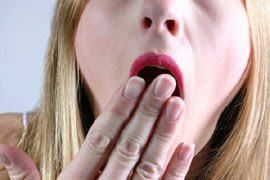 A lack of sleep alters the brain to such a degree that a person sounds drunk when they speak, according to a US study.
A lack of sleep alters the brain to such a degree that a person sounds drunk when they speak, according to a US study.
Bystanders might describe this type of speech as "tired-sounding" or "slurred," but experts studying the phenomenon say those descriptions aren't quite accurate.
The research, lead by Professor Suzanne Boyce from the University of Cincinnati was recently presented at the Acoustics08 meeting in Paris.
"Slurred speech is an extreme form of unclearly articulated speech," Boyce says.
"The differences we pick up are much less extreme, but they go in the same direction," says Boyce. "We'd call it 'faintly blurred,' rather than 'slurred,' speech."
Boyce and her team theorised that the differences between the speech of people lacking sleep and those who had a good night's rest would be comparable to the differences between conversational and "clear" speakers.
Over emphasising
"Clear" speech occurs when a person articulates or over-emphasises syllables, words and phrases - such as when addressing a formal gathering, talking to people who are hard of hearing or for whom the spoken language is not their native tongue.
A word like "police," for example, might sound more like "blees" in conversational speech, but like "poe-lees" in clear speech.
Boyce explains that "the process is largely subconscious," but when people articulate more "they add more acoustic information bits to the acoustic signal."
Computers can then detect these bits of information and note "landmarks," such as marking the puff of air released by the mouth when producing "t" or "k" sounds.
The researchers documented these changes and then applied the same analysis to recordings of test subjects who read sentences aloud and were asked to give driving directions approximately 10 hours since last sleep, then 34 and, finally, 58 hours.
The participants were allowed to eat and drink water, but not coffee or cola.
As expected, the sleep-deprived speakers gradually lost their ability to articulate, producing fewer detectible landmarks. Oddly enough, however, when such people hear themselves, they think they sound fine.
Improved listening skills
Boyce explained that "people lose awareness of how clearly they are speaking when they are tired."
In the future, the research may be used to train emergency phone line employees, communication professionals, and therapists who work with the hearing impaired.
Outside listeners, however, appear to have no trouble figuring out that the speaker missed some sleep.
"Listeners seem to clue in on other aspects, like sighs, long breaths and pauses in the recording, or even yawns, if they are audible," Boyce says, adding that if the person can see the speaker, they may also detect visual cues, "like posture, skin tone, eye gaze" and more.
Although not an optimal solution, scientists from Wake Forest University, North Carolina, have shown that the effects of sleep deprivation can be reversed when given a dose of the naturally occurring brain peptide orexin-A.
This chemical, normally secreted by brain neurons, regulates sleep. The brains of sleep-deprived people produce it, but often not enough to achieve full alertness.
"These findings are significant because of their potential applicability," says Wake Forest University Professor Samuel Deadwyler.
"This could benefit patients suffering from narcolepsy and other serious sleep disorders," he says, "but it also has applicability to shift workers, the military and many other occupations where sleep is often limited, yet cognitive demand remains high."
Sleepiness can make you sound drunk
Labels: Science News